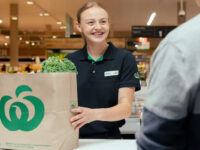
Discounting has long been a tactic in supermarkets to sell goods. But by lowering product prices to hold or boost market share, discounting has also resulted in low margins, which has led major players to seek alternate strategies to earn more profit.
Supermarket rivals Coles and Woolworths have shifted focus from increasing market shares to boosting profit margins over the past two years, moving away from discounting and towards loyalty programs, including Woolworths Rewards and Coles’ flybuys.
Collectable campaigns like Coles Little Shop have become very popular over the past two years.
“Advertisements now entice consumers with discounts less frequently and instead focus on promoting core brand values. For example, Woolworths has revamped its ‘Fresh Food People’ campaign, leveraging the brand’s association with quality produce. In June 2019, Coles announced a refreshed strategic direction with three core pillars, none of which reference winning market share or lowering prices,” said IBISWorld senior industry analyst, Tom Youl.
Meanwhile, discount grocer Aldi’s marketing and product range has also shifted. Before, its business model offered a limited range of branded products and a wider range of private-labels and had little to no marketing. This allowed the retailer to pass on savings to consumers and undercut its competitors in Australia.
“Notably, ALDI has increased its advertising expenditure over the past two years, promoting product quality and range, rather than low prices. Coles and Woolworths have reported similar changes to their strategies over the past two years,” said Youl.
Major industry operators have also boosted their digital capabilities to better understand consumer trends and meet buyer expectations. Loyalty programs play an important part in this transition, with detailed consumer data feeding into more sophisticated analytics systems.
“Woolworths has been growing its WooliesX division, which uses data to improve its digital offerings, such as mobile apps and scan-and-go shopping. In March 2019, Coles announced a partnership with Ocado, an online grocery website that specialises in optimising online shopping experiences, packing technology and home delivery. Online grocery sales have become increasingly important for industry operators over the past five years,” added Youl.
Ready-to-go meals are also becoming a hit at supermarkets, as it caters to the busy lifestyle of consumers.
“These meals and meal kits typically attract higher margins than standard produce, making them an attractive venture for industry operators. Similarly, supermarkets have sought to boost margins by increasing private-label product ranges, which typically have higher margins than branded goods,” concluded Youl.
IBISWorld expects product prices to increase through 2019-20 due to lower competition among supermarkets over the past decade. However revenue growth for the industry is anticipated to be subdued in 2019-20, with revenue rising by a modest 1.0 per cent.
While demand for staple items will support revenue growth in 2019, consumers will still opt for cheaper goods, such as private-label brands, due to a higher cost of living.
















